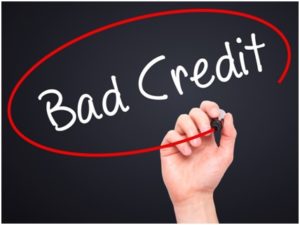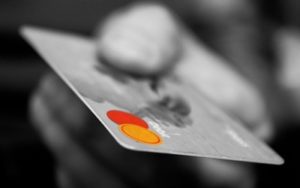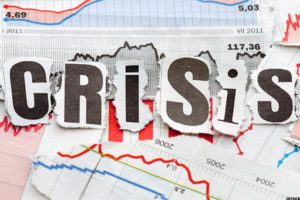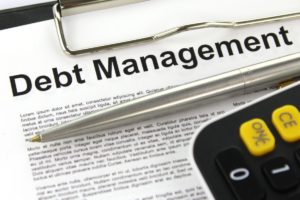 When creating financial goals and setting a budget, most folks understandably have questions about personal finance topics such as cutting back on expenses, how to save, what investments are best and how to get out of debt. These subjects are important because very few individuals have an unlimited income stream, and most face competing demands for their paycheck.
When creating financial goals and setting a budget, most folks understandably have questions about personal finance topics such as cutting back on expenses, how to save, what investments are best and how to get out of debt. These subjects are important because very few individuals have an unlimited income stream, and most face competing demands for their paycheck.
Regular monthly bills, such as rent, utilities and groceries often take up a good portion of the budget. It’s also wise to not spend every penny that one earns, but, instead, to hold on to a portion of it in order to have the funds available to save, invest and pay off debt. With all of these competing demands and only limited money in a budget, it’s difficult to decide which goals are the most important.
This is especially true when it comes to planning how much money to spend and save and which personal financial goals should take priority: investing or paying off debt?
Why Investing for the Future is Important
There are many types of investments one can make, and they run the gamut from stocks, bonds, commodities and real estate to mutual funds, 401(k) plans, annuities and even notes held against corporate, private and public debts. Basically, anything whose ownership can be acquired, either in part or whole, and later sold if one so chooses, is an asset which might grow in value over time and in which others can invest.
Investments are attractive because they offer the potential for growth. This is why it is a wise financial move to set aside a portion of one’s money for investment. However, it’s difficult for most individuals to find room in their budget to be able to save up enough money to invest, especially if they happen to already have a lot of debt, since debt and other spending eat into cash flows.
The High Cost of Debt
According to information about household debt from the U.S. Census Bureau, nearly 69% of all American households had some form of debt in 2011, the last year for which comprehensive data is available from the agency. The median amount of debt that they hold is around $70,000. Debt is a significant issue for most Americans, as debt payments often consume a major portion of the budget.
In addition to holding individuals back from being able to invest, it can also prevent them from being able to save for other goals, such as college tuition, a down payment on a home and saving for retirement.
When Debt is a Good Thing
While debt can take up a large portion of many folks’ budgets, not all debt is necessarily bad. For example, most people are unable to buy a home unless they pay for it over time through a mortgage. Other times, loans can be a real benefit if they improve one’s cash flow, such as taking out quick installment loans in order to consolidate several smaller loans or credit card balances.
When used to consolidate debt, this type of loan can help individuals to reduce the amount of interest that they pay over time on expensive revolving debt. Once all of the debt has been combined through consolidation, it also decreases the number of minimum monthly payments that must be made to keep accounts current, which is especially helpful for people who have several small debts that may require $50 to $100 or more in minimum monthly payments.
In this way, a simple installment loan often helps individuals to be able to shake debt more quickly and free up a significant amount of their cash flow each month which they are then free to save, invest, or spend elsewhere in their budget.
Balancing the Need to Pay off Debt vs. Investing
Since many investments tend to grow in value over time, especially classes of assets that involve the payment of interest, it’s always a good idea to regularly commit even a very small portion of the budget to investment, even when there is significant debt. Deciding how much to save for investment, and how much to save to pay down debt will depend on the constraints of the individual’s budget.
There are a number of popular budgets, but many financial experts, including Senator Elizabeth Warren who is Special Adviser for the Consumer Financial Protection Bureau, recommend the 50-30-20 budget.
In this budget, payments to meet needs such as housing, transportation, and other expenses are limited to 50% of the budget. The other half of the budget is divided between spending on wants, such as entertainment and savings that are used to pay debt and invest.
Deciding how to divide 20% of the budget between debt repayment and investing is the tricky part. It’s a good idea to always be putting something towards investing, but when the amount of interest on the debt is significantly larger than the interest that one can earn on an investment, it’s better to pay down the high interest debt first, and then slowly increase the amount earmarked for investments.
It’s also important to note that one doesn’t have to spend 30% of their budget on one’s “wants.” By reducing discretionary spending, even in the short term, it’s possible to free up additional funds to pay down debt so that there is always more room in the budget for investing.
Rather than avoiding all debt, properly managing it, such as using an installment loan to consolidate debts made at higher interest rates, gives borrowers options and enables most individuals to be able to meet their needs, indulge their wants and have enough money in their budget to both repay debt and invest at the same time.
 The biggest nuisance with applying for a home loan is getting the application rejected. While there are many reasons that lead to a loan disapproval, having a low CIBIL score is a major factor, which makes getting a loan seem impossible. However, there are several ways around the CIBIL score that can get your home loan approved. Here are some alternate ways that may help you to get your home loan approved, irrespective of your CIBIL score.
The biggest nuisance with applying for a home loan is getting the application rejected. While there are many reasons that lead to a loan disapproval, having a low CIBIL score is a major factor, which makes getting a loan seem impossible. However, there are several ways around the CIBIL score that can get your home loan approved. Here are some alternate ways that may help you to get your home loan approved, irrespective of your CIBIL score.















